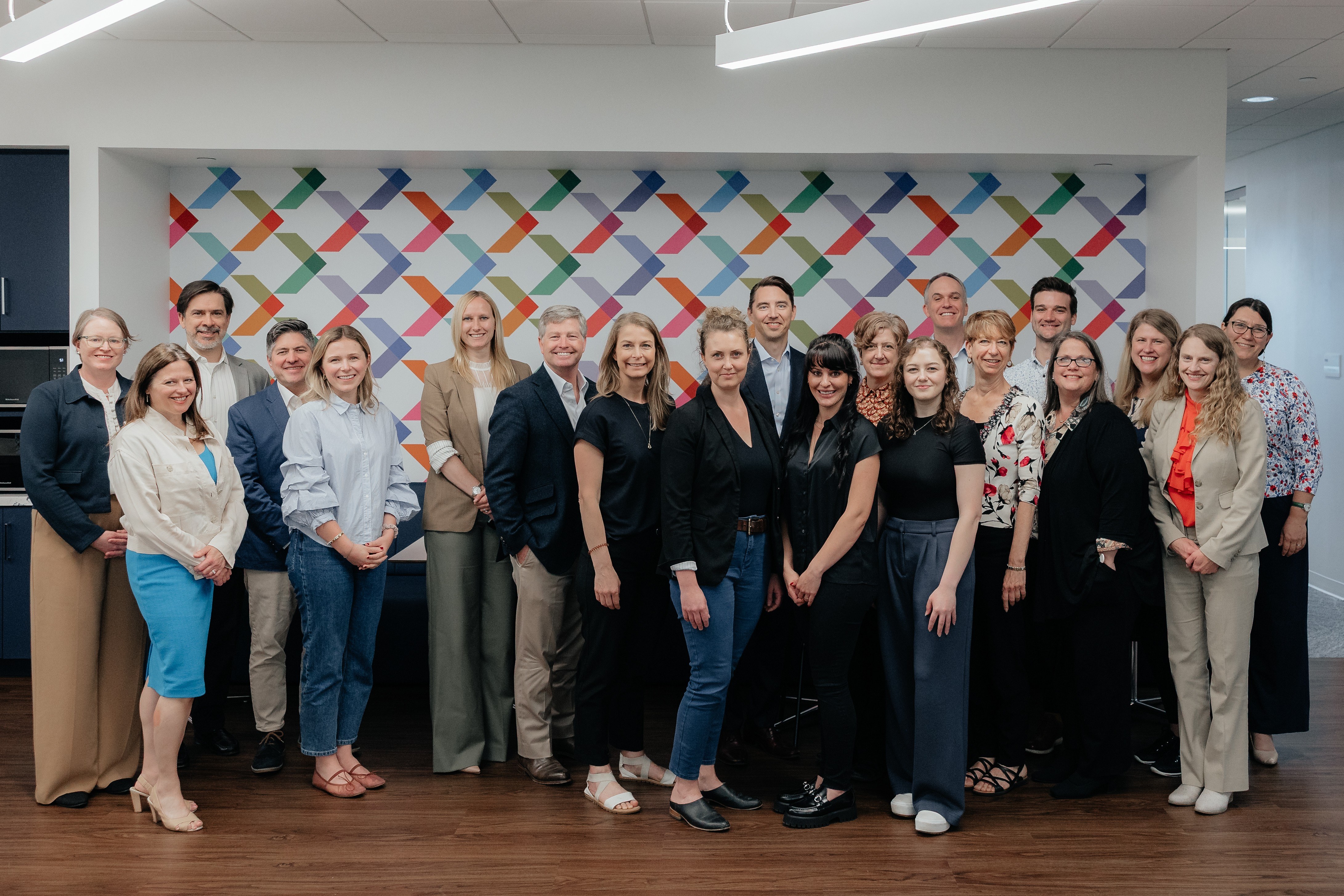Matchmaking across borders grows SMEs and plant protein opportunities
- Posted:
Sustainable company growth often doesn’t happen in isolation. Companies who are willing to work together, learn from each other and help each other grow tend to see success sooner than others, particularly in an emerging sector like value-added agriculture.
MBOLD, a coalition of food and agriculture companies and innovators, recognizes that the growth of small- to medium-enterprise (SME) companies is essential to achieving innovation across the sector. To accelerate SME success, it launched the Bold Growth Program in 2021. The program provides confidential, tailored mentorship by experts within and beyond MBOLD’s business membership, focusing on high-growth SMEs in the protein sustainability sector. The Bold Growth mentorship provides unprecedented access to business leaders who’ve already experienced the challenges SMEs are working to overcome, all at no cost

“When we thought about how we could support the entrepreneurial community, we realized that MBOLD has something really unique to offer: our members who are high level executives at leading food and agriculture companies that small businesses will typically not be able to access,” MBOLD Managing Director JoAnne Berkenkamp said. “We created the Bold Growth mentorship program to provide direct coaching and trusted mentorship for participating companies with large corporate players that have the expertise that those small companies need to reach their next level of growth.”
From the array of non-US companies that applied to the program in late 2024, two Canadian companies were chosen: Manitoba’s Prairie Fava, and Saskatchewan’s Three Farmers Foods. While both went in hoping the program could help them learn how to best scale their company, each also had other targets in mind.
Much of Prairie Fava’s goals, as an ingredient company, centre around growing in a way that supports their client companies’ R&D goals, particularly as their fava ingredient is relatively new to the protein market.
“That was kind of our motivation with the advisors, is the support on where Prairie Fava is today and how we can check the boxes, or are we currently not checking the boxes, to be able to supply and meet the standards and specifications of these top-tier companies,” Prairie Fava Co-Founder Hailey Jefferies said.
Three Farmers, meanwhile, has been focused on how they can strengthen their company for expansion in the U.S. market. This has meant the mentor interactions have focused on branding support and marketing advice, both of which may differ from what they’ve utilized here in Canada.
“The United States is obviously a big, strategic growth pillar for Three Farmers, regardless of tariffs, and at some point, growth in the United States is required. And so they’ve got a very deep network when it comes to retailer support and branding support, so we’ve really been tapping into that,” Three Farmers Founder and CEO Natasha Vandenhurk said.
Thanks to a trip to Minnesota for facility tours and a full slate of meetings with their mentors—Cargill, Hormel and Target for Three Farmers, and SunOpta, General Mills and Schwan’s for Prairie Fava—both companies have made progress in their goals under the program. Jefferies and Vandenhurk described the Minnesota trip as insightful and worthwhile, and the meetings with the mentors as fruitful. They agreed, however, that neither program element would have been as successful without proper preparation.
“That's the unique thing about the program, to be in the same room as these stakeholders and leaders and to be able to share where you're at in challenges and have honest, open conversation, dialogue and feedback,” Jefferies said. “But one thing that was strongly recommended, and I believe, and I take this advice seriously, is really putting in the preparation.”
Vandenhurk had a similar experience, adding that she’d recommend a company truly understand what they need to get out of the program before applying.
“They should go in understanding where their pinch-point is in their company, and what sort of project or unlock that they need to work on to get them to the next level,” she said. “Bring that to the table with MBOLD, and then they basically surround you with the right advisors to help mentor you through that.”
As the current MBOLD cohort wraps up later this year, other companies interested in taking part will soon have an opportunity—as will a wider slate of applicants. Initially open only to companies in Minnesota, the program widened to accept companies in the protein sustainability space based outside the United States in 2024, and will open to both American and overseas companies in fall 2025. Berkenkamp hopes that Bold Growth can help companies ready to shake up the global plant protein space.
“Socrates said that the key to life was to know thyself, and I think that's true for emerging businesses as well. We look for companies that are in a creative mindset, that are moving fast, that are scaling, and that are really trying to figure out their pathway to greater success,” she said. “We also look for important innovations in protein sustainability that have the potential to move the market, and business leaders that are ambitious and realistic and want to change the world.”
For more information about the MBOLD Bold Growth program, including how to apply:
